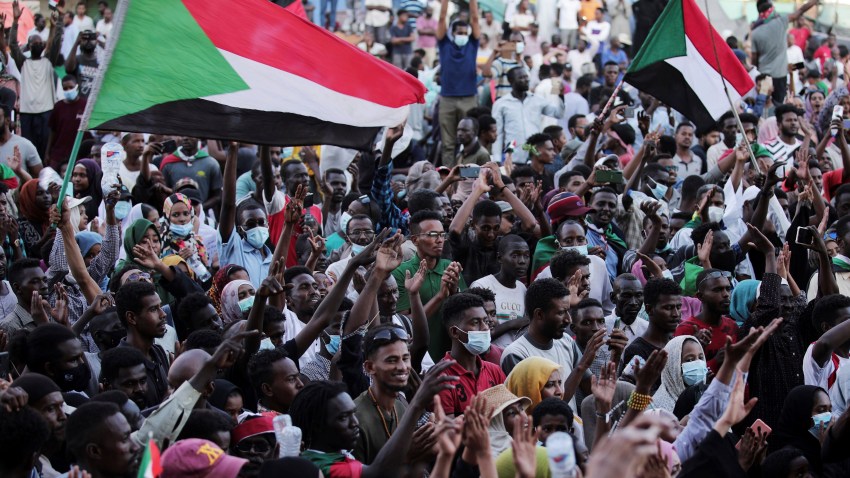The current conflict in Sudan between the armed forces and the Rapid Support Forces paramilitary group is a security and humanitarian crisis. But more importantly, it is a political crisis, one that grows out of the failure to build a sustainable democratic transition after the popular uprising that removed former dictator Omar al-Bashir from power in April 2019.
That failure can be traced through the various transitional deals that have been signed and then either ignored or violated since 2019. In that time, the civilian political actors in Sudan’s transition have been unable to overcome their deep divisions, giving free rein to the armed forces under Gen. Abdel Fattah al-Burhan and the RSF under Mohamed Hamdan Dagalo—known as Hemedti—to seize and now compete for control of the country. Tragically, the same thing is recurring now, meaning that when the guns are finally silenced, Sudan’s civilian political actors will be unable to play a meaningful role in steering the country to a sustainable peace.
Sudan’s first transitional agreement was a power-sharing constitutional declaration between the military and the Forces of Freedom and Change, or FFC, the civilian alliance that led the negotiations with the army after the removal of Bashir’s regime. The declaration laid the groundwork for the formation of a joint military-civilian government whose goal was to ultimately guide Sudan back to civilian rule by 2022. But it failed to achieve the uprisings’ demands because of political disputes between rival groups among the civilian participants.

